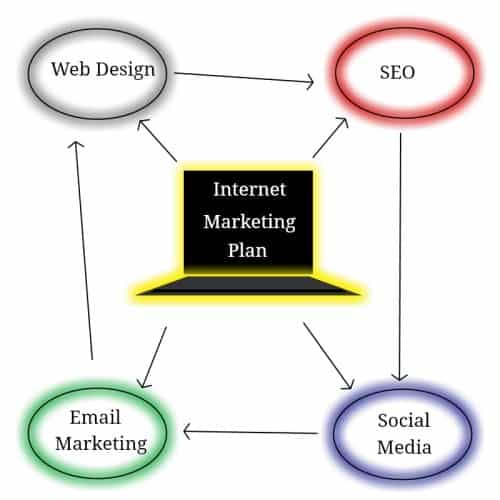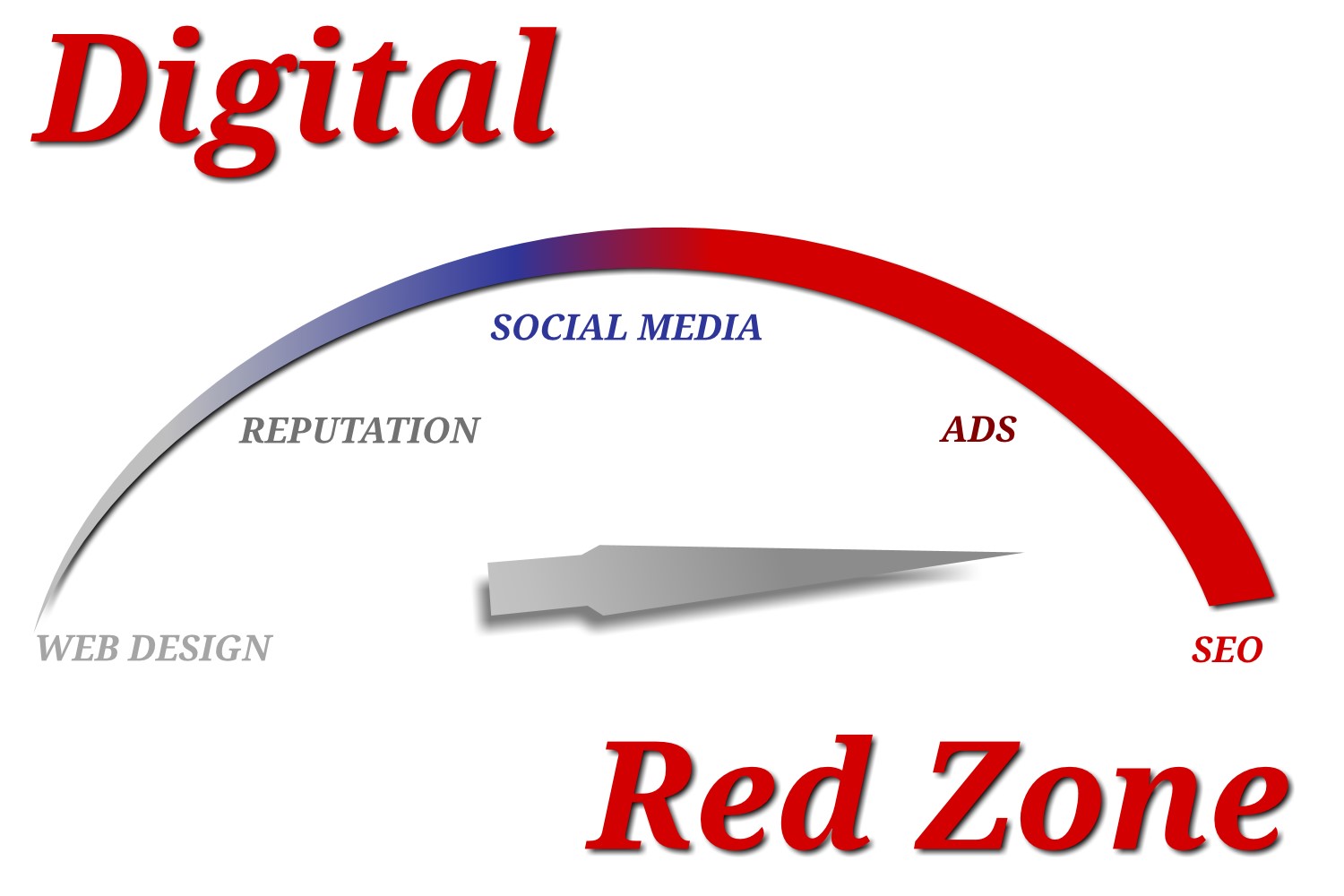Internet Marketing
Internet Marketing is the process of promoting a business or brand and it's products or services over the internet using tools and techniques that will help drive potential clients to your website for your niche. We construct an internet marketing report for your business that will show what your competitors are doing and create a detailed a plan of action based on factors that we uncover in the report.

Internet marketing can be done in many ways: SEO, web design, social media marketing, video marketing, digital ad marketing, email marketing, and keyword research. The main goal for any marketing campaign is to get customers and MAKE MONEY! To do this we primarily focus on social media marketing, search engines, and web design. Social Media marketing is highly effective for many businesses. This is mainly because you are able to target potential customers interested in your niche. Social Media marketing can be used for promoting a sale, spreading the word about a new product or service, or establishing a strong brand for your company. At Digital Red Zone we take all of the information we gather use it to formulate the premier Internet Marketing Plan for your business.
Internet marketing, often called online marketing or digital marketing, encompasses a wide range of online strategies and tactics used to promote products, services, and brands via the Internet. It leverages various online channels, platforms, and tools to reach and engage potential customers.
Here's a breakdown of what Internet marketing entails and its benefits to small businesses:
Components of Internet Marketing:
- Website and Web Design: A digital 'storefront' where customers can learn about and interact with a business.
- Search Engine Optimization (SEO): Optimizing a website so it appears higher in search engine results, increasing organic visibility.
- Pay-Per-Click (PPC) Advertising: Paid ads appear on search engines and other platforms, where advertisers pay each time the ad is clicked.
- Content Marketing: Creating valuable content to attract and engage potential customers, often through blogs, videos, and other formats.
- Email Marketing: Sending promotional or informational emails to an audience to foster relationships and drive sales.
- Social Media Marketing: Promoting a business and its offerings on platforms like Facebook, Instagram, Twitter, LinkedIn, etc.
- Affiliate Marketing: Partnering with others to promote products or services in exchange for a commission on sales.
- Online PR: Managing a business's online reputation and fostering positive relationships with online media, bloggers, and influencers.
- Display Advertising: Using website banners, video ads, and other visual ads to promote a business.
- Analytics and Data Analysis: Tracking online performance to make informed decisions and optimize campaigns.
Benefits to Small Businesses:
- Cost-Effective: Compared to traditional advertising, many forms of Internet marketing can be more budget-friendly, allowing small businesses to reach more people with less money.
- Targeted Marketing: With tools and platforms available, businesses can target their marketing efforts to specific demographics, behaviors, and locations.
- Measurable Results: Online marketing campaigns can be tracked in real-time with detailed analytics, allowing businesses to see what works and doesn't and adjust accordingly.
- Global Reach: The Internet allows small businesses to reach customers locally and globally, expanding their potential market.
- 24/7 Marketing: Online promotions, websites, and social media profiles are accessible around the clock, allowing customers to engage with businesses anytime, anywhere.
- Flexibility: It's easier to tweak or halt online marketing campaigns than traditional methods, providing agility in response to changing market conditions or business needs.
- Improved Engagement: Digital marketing offers interactive opportunities, from social media conversations to real-time customer service chats.
- Building Relationships: Through email marketing and social media, businesses can nurture leads, foster customer loyalty, and receive direct feedback.
- Compete with Larger Businesses: The online landscape provides a level playing field where a well-strategized small business can compete with more prominent players.
- Easy Adaptability: Trends in digital marketing evolve, but with the plethora of online resources, small businesses can adapt quickly.
- ROI Driven: By focusing on data and analytics, small businesses can ensure that their marketing spends are returning a positive investment.
Expert Tip:
For small businesses, venturing into Internet marketing can lead to significant growth, increased brand awareness, and a stronger connection with their target audience. The key is to select the right strategies that align with the business's goals and to monitor performance for ongoing optimization.
